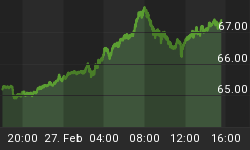Turkey is facing a possible credit downgrade if it can't get its financial act together, according to new analysis from credit ratings firm Moody's.
Turkey needs to put a substantial and reliable plan in place if it is to avoid another cut to its already dismal sovereign credit score which could further weigh on its economy, a senior Moody's expert said late Wednesday.
The Turkish government has already vowed to execute an economic program to lift the country out of a deep recession and reduce inflation, which has soared to nearly 20 percent.
Investors, however, are still anxious that the actions made up until now, which include tax cuts and financial assistance for crisis-hit companies, are merely stop-gap schemes that endanger the country's finances and fail to address weak points in the Turkish economy, including the banking sector.
Moody’s Managing Director of Sovereign Risk, Yves Lemay, explained, “Failure to put forward a credible broad-based plan to address the structural issues, and in the near-term dampen the market volatility pressure on the lira...that would be a pressure point from a rating perspective," adding “Together with turbulent politics, weaker institutions have led to a deterioration in the quality and transparency of macroeconomic policies."
Can Turkey turn its economy around?
Turkey's lira fell 28 percent against the dollar in 2018 as anxiety among investors about an overheating economy intensified when Turkey and the United States became involved in a diplomatic fall-out over the jailing of a U.S. pastor. The two nations are now quarreling over Turkey's intentions to purchase S-400 air defense missiles from Russia.
Moody's estimates the Turkish federal government's interest payments rose 30.4% in small terms in 2018 and nearly 50% in the very first three months of this as the lira continued to struggle. Related: Central Banks Are Stockpiling Gold
Turkey could see a positive influence on its score should it obtain external funding support or address political strains with the United States, Moody's stated.
Investors are also somewhat positive, suggesting that Turkey would arise from an economic recession more swiftly if it were to agree to a rescue program from the International Monetary Fund.
But the country is still facing an uphill battle. Turkey's budget plan gap stretched more than five-fold in April to 18.3 billion liras ($3.1 billion), bringing the shortfall so far this year to 68 percent of the government's year-end objective.
Spending climbed 13 percent while profits shrank 11 percent, data published by the Treasury and Finance Ministry on Wednesday revealed.
By Michael Kern
More Top Reads From Safehaven.com:
















